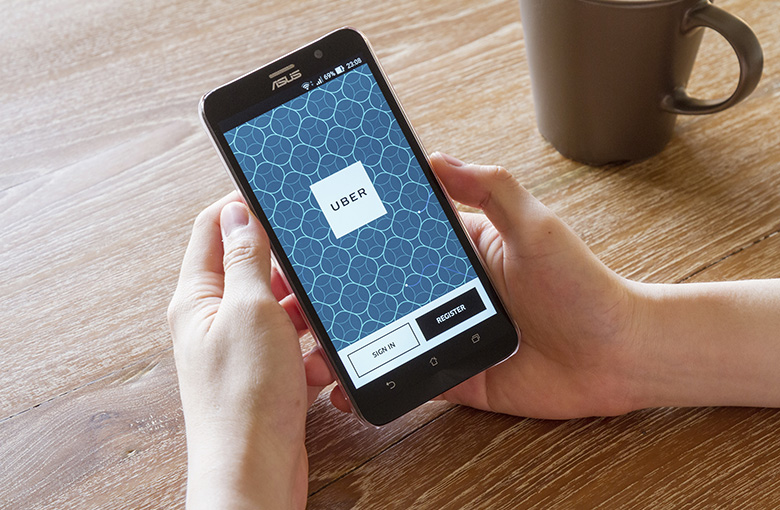
ASU team first to prove Uber eases traffic congestion
ASU Information Systems Department researchers find ride-sharing service saves travel time and gas.
A trio of Arizona State University researchers has quantified the "Uber effect" by completing the first study to prove that when the ride-hailing service enters an urban market, it reduces traffic congestion, cuts travel time, and saves gas for all drivers. Information Systems Department researchers in ASU’s W. P. Carey School of Business: Yili Hong, an assistant professor; Zhongju Zhang, an associate professor; and Ziru Li, who is a doctoral student and research associate reported in the article from ASU Now September 29, 2016:
“Ride-sharing is a big topic in our discipline,” Hong said. “We study how information technology, which Uber and ride-sharing are a part of, impacts society, and we were intrigued by this big phenomenon.” “We were brainstorming good research topics, and we came across a lot of heated debate about the ‘Uber effect,'” particularly in New York City, Zhang said. The team wanted to see what the broader impact was. For example, in metro Phoenix, researcher Ziru Li said (the savings) translates into about 1.8 million hours that are not spent in traffic jams and more than 900,000 gallons of fuel saved. Together, the time and gas saved are valued at about $43 million since Uber entered the market in 2012.
Latest news
- Artificial intelligence in business master's degree helps Nathan Merriman combine business strategy with technology
Nathan Merriman (MS-AIB '25) had been working in business for a few years when he learned about…
- How the Executive MBA empowered Scott Gates to be a mission-driven leader
Scott Gates (BS Marketing '04, Executive MBA '15) had a very positive experience during his…
- Fall 2025 W. P. Carey Dean's Medalists honored at celebratory luncheon
Top grads from each program recognized for academic excellence and lasting impact on the ASU…